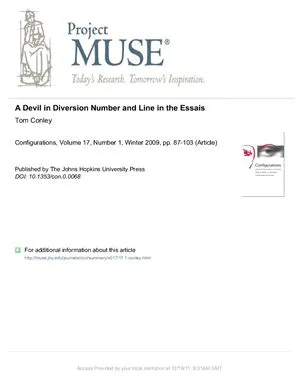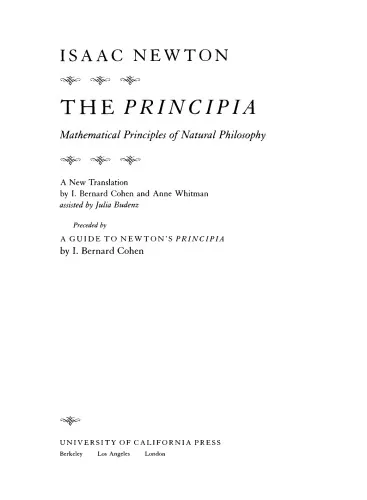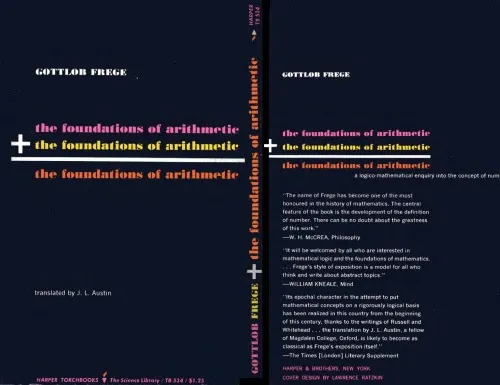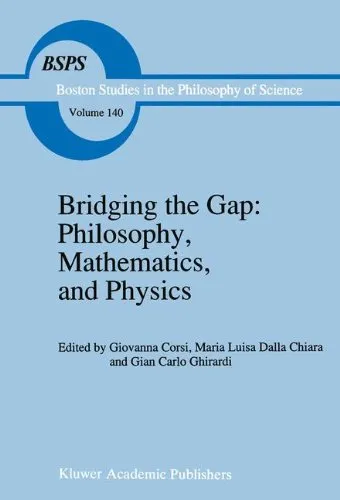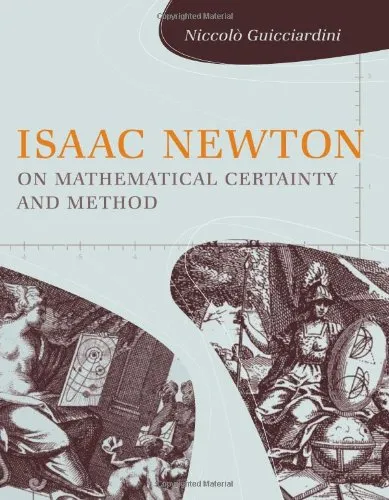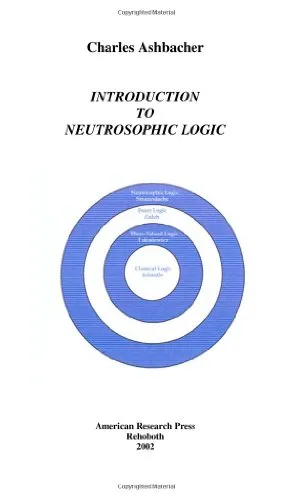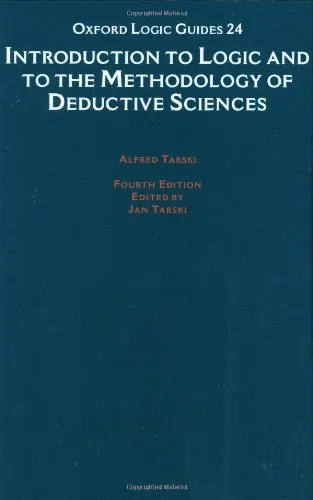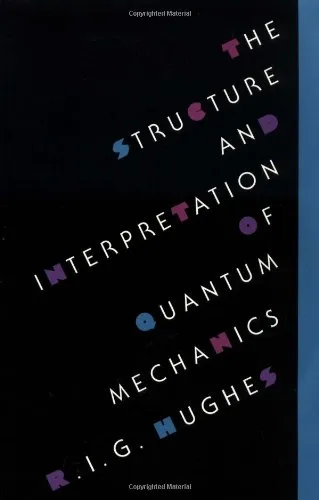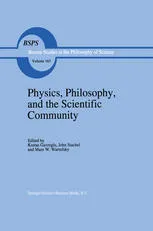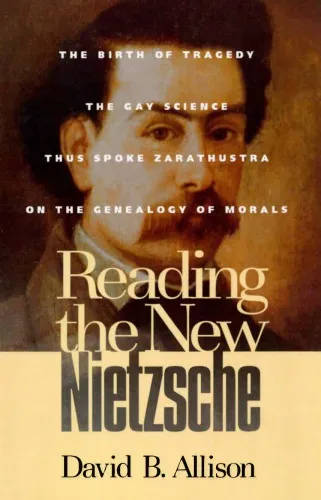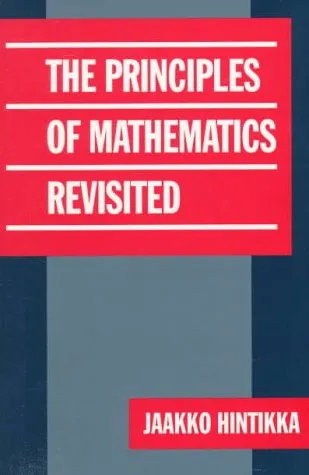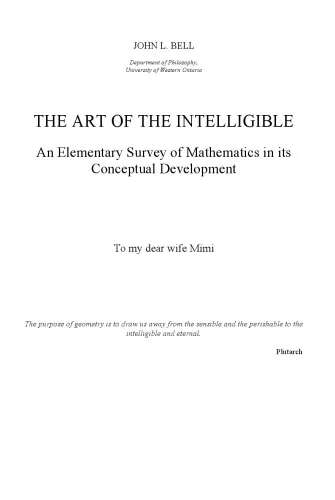A Devil in Diversion: Number and Line in the Essais
4.0
Reviews from our users

You Can Ask your questions from this book's AI after Login
Each download or ask from book AI costs 2 points. To earn more free points, please visit the Points Guide Page and complete some valuable actions.Related Refrences:
Welcome to A Devil in Diversion: Number and Line in the Essais, a meticulously crafted exploration of the intricate interplay between numerical logic and the fluidity of personal expression within Michel de Montaigne's seminal work, Essays. This book delves deep into the themes of structure, measurement, and abstraction, as well as Montaigne’s rejection of rigid conventions in favor of a more organic philosophy of thought. Through a fusion of intellectual history, mathematics, literature, and philosophy, this book invites readers to reconsider what it means to structure the self.
Detailed Summary of the Book
A Devil in Diversion: Number and Line in the Essais proposes an innovative interpretation of Montaigne’s Essays, one of the foundational texts of modern philosophy. Unlike many thinkers of his era, Montaigne resisted categorization and numerical rigidity, embracing instead the fluidity of the human experience. This book posits that, while his work may appear chaotic or even disorganized, Montaigne’s writings contain a subtle occult structure grounded in the concepts of “number” and “line.”
Readers are taken on an intellectual journey, dissecting Montaigne's use of metaphorical constructions that challenge the Cartesian framework of linear order and predictable measurement. Specific essays are explored to reveal Montaigne’s subversion of these conventions, where the “line” becomes an emblem of existential movement and the “number” a paradoxical measure of the immeasurable self.
Throughout, the book underscores Montaigne’s playful engagement with paradox and irony—most notably in his self-reflective attitude. By focusing on the concepts of number and geometry, A Devil in Diversion frames Montaigne’s apparent digressions as deliberate forms of resistance to rigid categorization. The book, in turn, challenges you, the reader, to rethink what it means to measure and define human thought in an age preoccupied with certainty.
Key Takeaways
- Montaigne’s writing style deliberately mirrors the unpredictability of the human condition.
- The concepts of "number" and "line" serve dual functions throughout his work: as tools for structure and as symbols of its eventual breakdown.
- Montaigne’s skepticism can be seen as a foreshadowing of modern philosophical movements such as existentialism and deconstruction.
- The "Essais" blur the line between mathematics, philosophy, and literature, revealing an interconnected world of thought.
- This book encourages readers to embrace the fragmentary, meandering nature of both life and knowledge in pursuit of a deeper understanding.
Famous Quotes from the Book
“Montaigne’s rejection of order was not mere rebellion but an assertion: the lines we impose cannot fully account for the curves and diversions of existence.”
“A number may measure space or time, but it cannot measure the ever-changing mind, which refuses to be confined.”
“To Montaigne, words themselves were both tools and traps—linear in appearance, yet infinite in possibility.”
Why This Book Matters
In an age dominated by data, quantification, and rigidity, A Devil in Diversion serves as a timely reminder of the limitations of such systems. By revisiting Montaigne’s classical yet revolutionary thoughts, this book addresses a broader cultural challenge: the tension between a desire for structure and a need for freedom in understanding ourselves and the world.
For students of philosophy, this work offers a refreshing lens through which to view an often-quoted but little-understood philosopher. For mathematicians, it blurs the lines between abstraction and human experience. Finally, for anyone seeking to find meaning amid life’s uncertainties, A Devil in Diversion offers a meditative reflection on how to reconcile contradictions with grace.
Far from being confined to any one discipline, this book demonstrates the enduring relevance of Montaigne while showcasing the vitality of interwoven narratives that straddle the realms of philosophy, mathematics, and art. It challenges long-held assumptions and incites readers to take up Montaigne’s restless curiosity, embracing the unknown and the nonlinear.
Free Direct Download
You Can Download this book after Login
Accessing books through legal platforms and public libraries not only supports the rights of authors and publishers but also contributes to the sustainability of reading culture. Before downloading, please take a moment to consider these options.
Find this book on other platforms:
WorldCat helps you find books in libraries worldwide.
See ratings, reviews, and discussions on Goodreads.
Find and buy rare or used books on AbeBooks.
1227
بازدید4.0
امتیاز50
نظر98%
رضایتReviews:
4.0
Based on 0 users review
"کیفیت چاپ عالی بود، خیلی راضیام"
Questions & Answers
Ask questions about this book or help others by answering
No questions yet. Be the first to ask!
